08/07/25
Opportunity, risk and permission to fail: Four key takeaways from the Acteon event
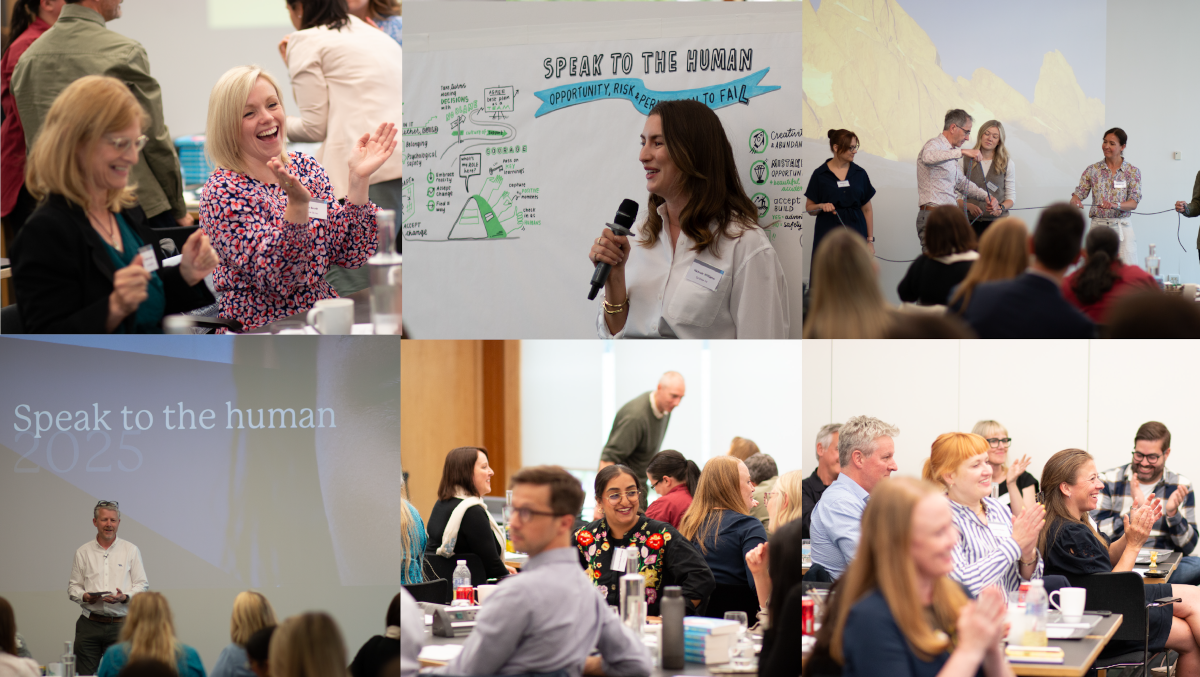 By Kate Wyver
By Kate Wyver
From mountain peaks to musical improvisation, this year’s Speak to the Human event offered a rich variety of ideas to help us all think differently.
The day’s theme of opportunity and risk was interpreted differently by each of our speakers, who came from wildly varied worlds of work. As improviser Heather Urquhart pointed out, ‘risk’ for her might mean looking silly on stage, where for mountaineer Andy Cave, things could get a lot hairier.
Using their individual expertise, each speaker mined their vast experience for tasty insights into ways to think about risk. Our concept of ‘permission to fail’ was about affording people the opportunity to take risks knowing that failure is a possibility, while still aiming for a successful outcome. The speakers gave us perspectives and stories to help us consider how embracing failure can often be an opportunity for courage, creativity and success.
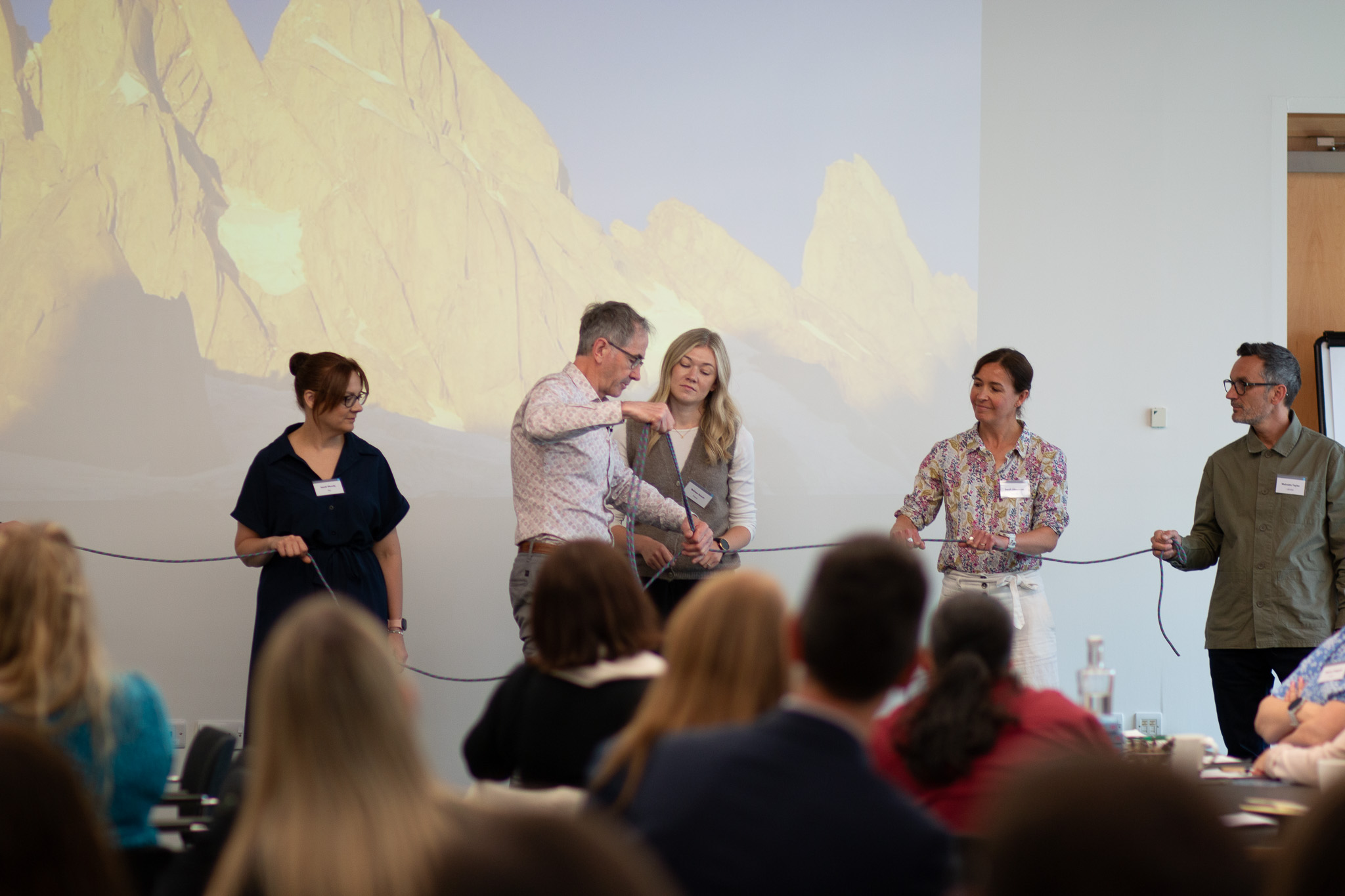 1. Andy Cave: Leading into the unknown
1. Andy Cave: Leading into the unknown
Nail-biting stories of mountaineering escapades kicked off the event, with a talk from pioneering climber Andy Cave. The award-winning author started life as a miner, but through intense dedication made his way to the tops of mountains, including scaling the infamous North face of the Eiger, also known as the “wall of death.”
Rather than his stories focusing on thrill and danger, Andy spoke to us about safety, primarily of the psychological kind. He emphasised how he’s learned the importance of building trust within teams, which we can all make use of in our daily lives, even if we work on less volatile ground.
Being on a mountain can be deadly. Too many memoirs involve climbers getting close to the top, knowing that bad weather is around the corner, and carrying on regardless. The key to getting everyone down in one piece, Andy told us, is always to be ready to adapt and accept change. Acknowledging that something hasn’t gone to plan, and working calmly with your team to find a solution, is sometimes the only way you can keep your team safe.
Even if you’re not planning to camp out on a freezing cliff-face anytime soon, the lesson stands. A no-blame culture with ample trust enables anyone to be best suited to any challenge and adapt at speed – whether that’s for a project or a world-first ascent.
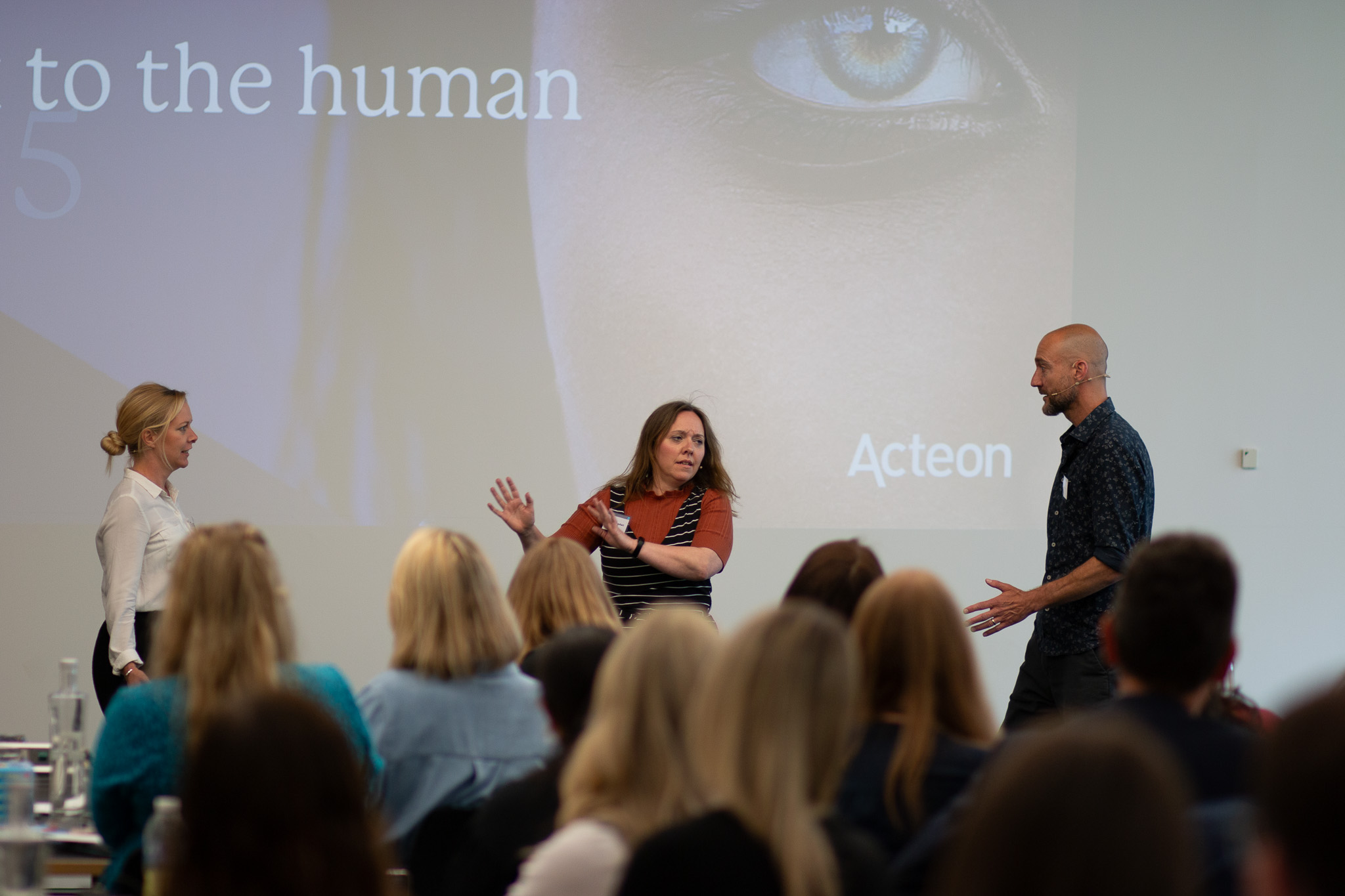 2. Heather Urquhart: Acting and reacting
2. Heather Urquhart: Acting and reacting
With baffling speed, the brilliant improvisers from AndAlso turned our shouted-out suggestions into an incredible musical number. The team were clearly born with funny bones, but they shared with us some of the tricks they use to stay playful and inventive in their storytelling, so that a little bit of their quick-thinking magic might rub off on us, too.
Heather Urquhart told us to stop thinking that we need to have all the answers; that a doggedness to have everything in hand was likely holding back both our ambition and our creativity. “Bring a brick,” she said, “not a cathedral.” She explained that in improv a good teammate is one who brings an idea for the team to share and play with. A bad teammate is one who comes along with the whole show figured out and a determination to stomp stubbornly in that direction.
To some people’s terror, the AndAlso team got us to try an improv exercise. We were each handed an imaginary box and, with a partner, told to list all the items we found it in. My partner and I took turns: A shoe. A caterpillar. Grief. The buzz of the game quickly led to floundering, but we were told to keep going. We kept picking out items, scattily throwing out words we scrounged up: The ocean. My dignity. A leaf! As time went on, our answers became more unpredictable.
This was the purpose of the exercise: to keep talking beyond what we had planned for and to see what exciting, unusual places that led us to. “Fall,” Heather quoted Del Close, “then figure out what to do on the way down.” As we dredged up messy, looser ideas, the game took us into increasingly funny and unexpected places. Keep digging beyond what you think is possible, the improv team suggested, and you might just unearth some gold.
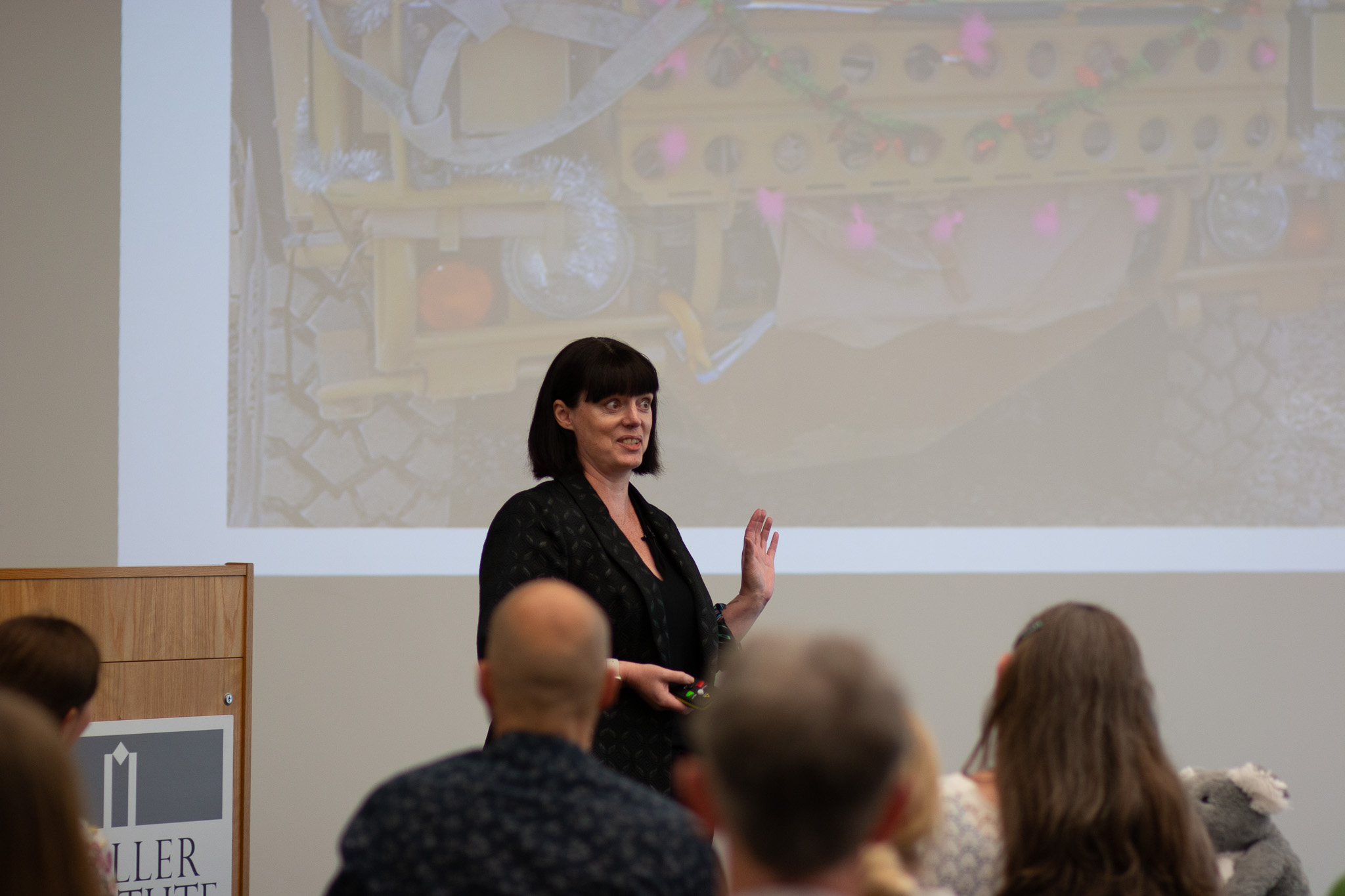 3. Lesley Woods: Responding under stress
3. Lesley Woods: Responding under stress
Military leader and Chief Communications Officer for the MOD, Lesley Woods, brought us her unique perspective from the front line. With much of her working life responding to extreme pressure, she shared the importance of staying calm even when you end up in scary – or even absurd – situations.
Like Andy, Lesley stressed the necessity of being ready to adapt to situations when things don’t go to plan, like when a fire broke out at a military base in Afghanistan while she was showing a TV crew around. She had to rapidly change their plan, find somewhere to hide, and model the same calmness she needed from her team to keep everyone safe.
Most of us will never find ourselves in a situation quite like this, but Lesley’s lessons are useful for us all. She spoke about training hard so the fighting comes easily. In our individual contexts at work, how can we prepare ourselves for any eventuality, so that when the time comes when we need to make fast, important decisions, we are ready to act?
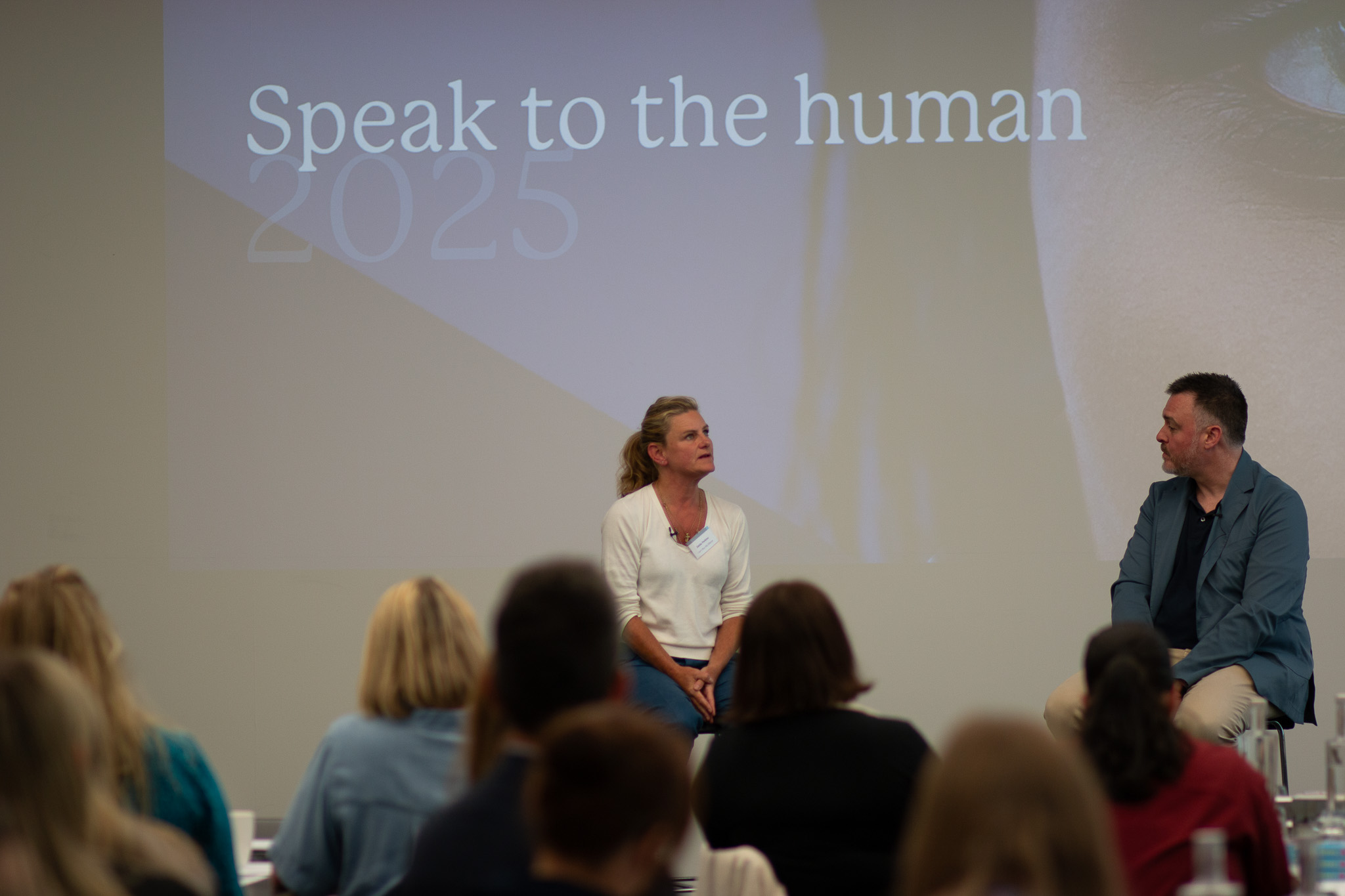 4. Zelda Perkins: Standing strong
4. Zelda Perkins: Standing strong
For me, Zelda Perkins stole the show. The activist spoke with such clarity about her experiences, as if the brave options she took were the only ones available to her.
Zelda was the first woman to break an NDA to expose Harvey Weinstein. As a former assistant to the disgraced film producer, she spoke up against his actions and she was made to sign an agreement that kept her quiet.
As she detailed the ways she was silenced, and the multiple ways she was let down and her life turned upside down as a result, she kept talking about following her gut. To us, she described lots of things as an accident, as instinct, as just doing the only thing she could. But at each turn, there was always the option to step back and stay quiet, not to be the one to make trouble. Doubtless many other people along the way had the same feelings as Zelda did, but she never once buried her instincts. She has since been integral in changing legislation to prevent NDAs to buy victims’ silence.
Zelda’s story is a striking lesson to trust your moral judgement. In her Q&A with Christian Hunt, she left the whole room in awe.
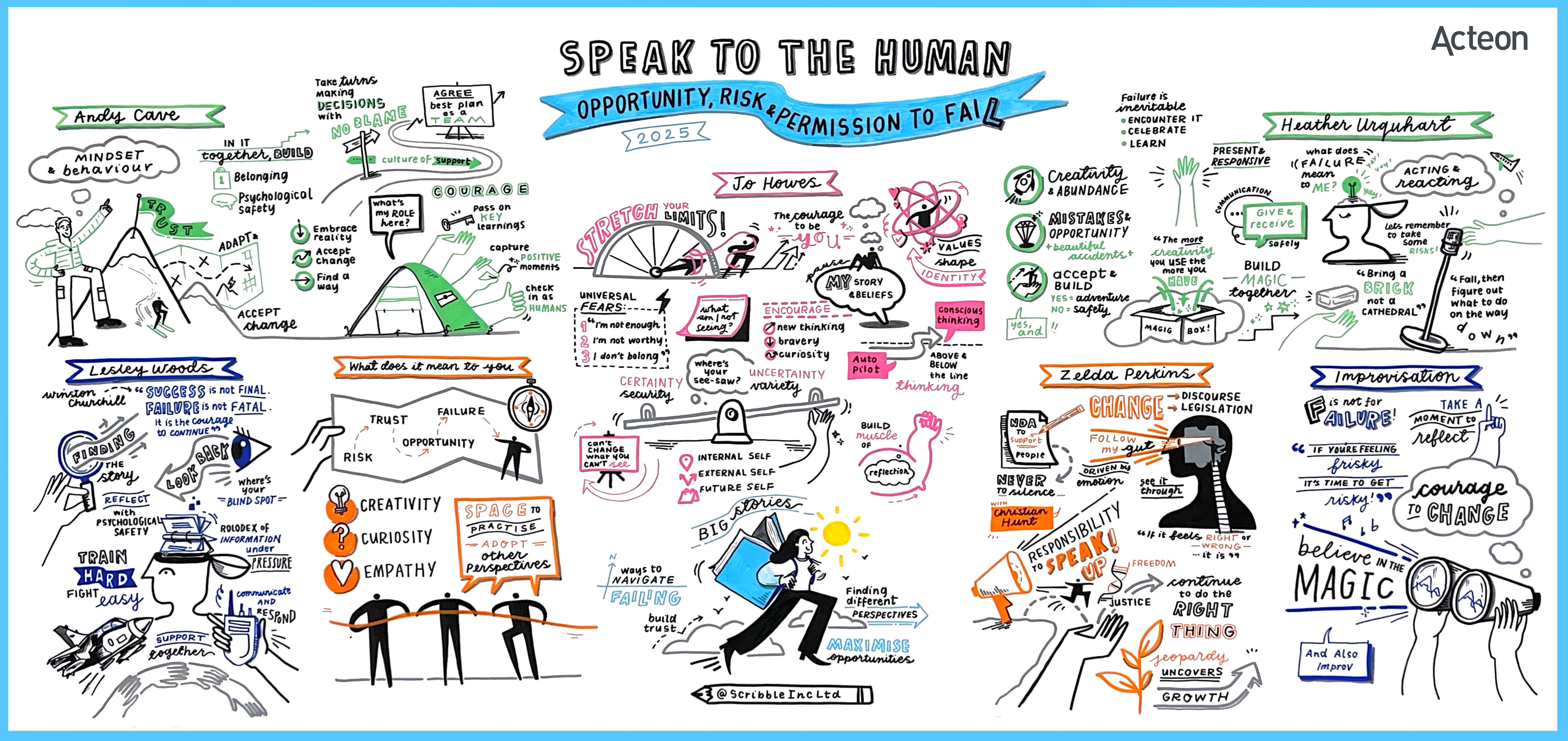
Our speakers shared stories of danger and daring, and how those terms can mean something different to everyone. Their admissions of mistakes and mishaps showed how risks must be taken to find our way towards success, with a complete readiness for failure along the way.
What next?
Speak to the Human Autumn Brunch
We are delighted to bring you an exciting new event in the ‘Speak to the Human’ calendar, featuring acclaimed broadcaster and author, Matthew Syed.
The Power of Cognitive Diversity, with Matthew Syed
Join us on Wednesday 12th November, 8:30-10:30am
Underwood Lofts, 6-14 Underwood St, London, N1 7JQ
FIND OUT MORE